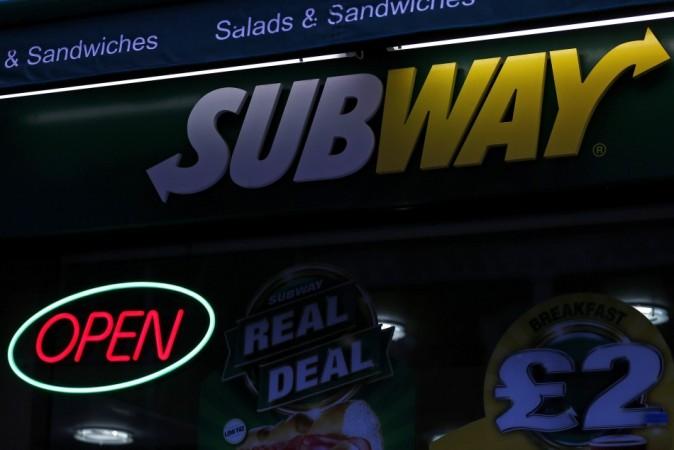
Subway, one of the largest sandwich retail outlets with 41,241 restaurants in 105 countries, is in the process of removing a chemical called azodicarbonamide from its bread, after a health activist launched a campaign to remove the chemical.
"We are already in the process of removing azodicarbonamide as part of our bread improvement efforts despite the fact that it is (a) USDA and FDA approved ingredient," Subway said in a statement, reported Daily News. "The complete conversion to have this product out of the bread will be done soon."
Azodicarbonamide, commonly used in yoga mats and shoe soles to increase elasticity was used in Subway breads to strengthen dough, and Food Babe blogger Vani Hari noted that it causes respiratory issues as well as allergies.
"Everyone from The First Lady Michelle Obama to the American Heart Association (AHA) to several Olympic athletes have endorsed Subway for their purportedly 'fresh' and 'nutritious' meals.
"Unfortunately, not only have these people and organizations been duped, but millions of people across North America have been as well," Hari noted in her blog.
In her blog, Hari claims that the chemical is used in 9-grain wheat, Italian white, honey oat, Italian herbs & cheese, parmesan/oregano, roasted garlic, sourdough and Monterrey cheddar breads, served in the U.S. and Canada.
She also launched a petition, which has since been signed by 74,723, seeking the removal of azodicarbonamide from Subway sandwich bread. Hari also wrote that Europe and Australia has banned the chemical owing to health concerns and in Singapore, one can be fined 450,000 dollars and serve up to 15 years in prison for using it.
Center for Science in the Public Interest, or CSPI, on its website noted that when azodicarbonamide is baked, it breaks down into semicarbazide, which caused cancers of the lung and blood vessels in mice, but poses a negligible risk to humans, and urethane, which is a recognized carcinogen.
"Considering that many breads don't contain azodicarbonamide and that its use slightly increases exposure to a carcinogen, this is hardly a chemical that we need in our food supply," CSPI said on its website.

















